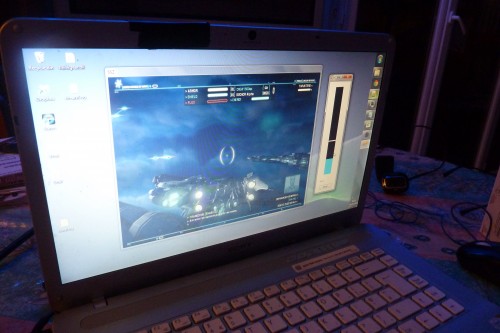This is the first of three posts focusing on the SKEA, a Kegel exercise product I backed last year on Kickstarter. This post concerns the history of the SKEA Kickstarter and the reverse engineering of the SKEA API. The other posts in this series are: –
Category: Hacking
Supporting Bluetooth Devices in Unity
I recently started learning how to develop games in Unity. After going through a couple of tutorials to familiarise myself with the tool I started work on integrating the Bluetooth sensors I have into my Unity projects. As Unity supports a C# based scripting language I thought it would be a relatively straightforward task to migrate my existing C# code from my Visual Studio projects. As probably to be expected migrating the code wasn’t as easy as I’d thought it be.
Continue reading “Supporting Bluetooth Devices in Unity”
Strike Suit Neuro – Video
Video of a neurofeedback game mechanic I’ve been working on for Strike Suit Zero.
Need to spend some time developing a calibration procedure for the measure I use but otherwise a serviceable mechanic. And perhaps spend some time practicing with the keyboard flight controls, I’m a terrible pilot!
Strike Suit Neuro

Prototyping an idea I had earlier today on brainwave triggered special abilities (see Lin Chung Combat post for background). Fine tuning the mechanic is bloody difficult when your sleep deprived.
Post Oggcamp, GSR and Mama Horror Short
Last weekend I was at Oggcamp demoing a mobile GSR sensor using a mini-horror game I quickly whipped up for the event. The game uses a similar mechanic to Dark Escape 4D which I played a couple of months back. Dark Escape is a 2-player light-gun game with competitive biofeedback elements. During play there are several predetermined events which try to shock players into responding physiologically, and the player who responds the least is judged the winner. Its an interesting idea which lends itself well to an arcade game.
Continue reading “Post Oggcamp, GSR and Mama Horror Short”
Oggcamp, GSR and Horror Games
I’m off to Oggcamp tomorrow to demo a mobile GSR sensor. The device was originally commissioned by FACT (and built by Madlab) for an art exhibit I was involved in earlier in the year, however owing to time constraints we replaced the sensor for an off-the-shelf heart rate monitor. As the technical consultant involved in this venture the sensor has a couple of features I like in all my devices, such as being Bluetooth (easy to connect to) and a step counter (to manage data loss). I’m surprised how how many wireless sensors don’t provide a means to manage data loss, they just seem to assume their operating as a wired device which is the wrong assumption to make as research depending on time-locked signals becomes impossible. Continue reading “Oggcamp, GSR and Horror Games”